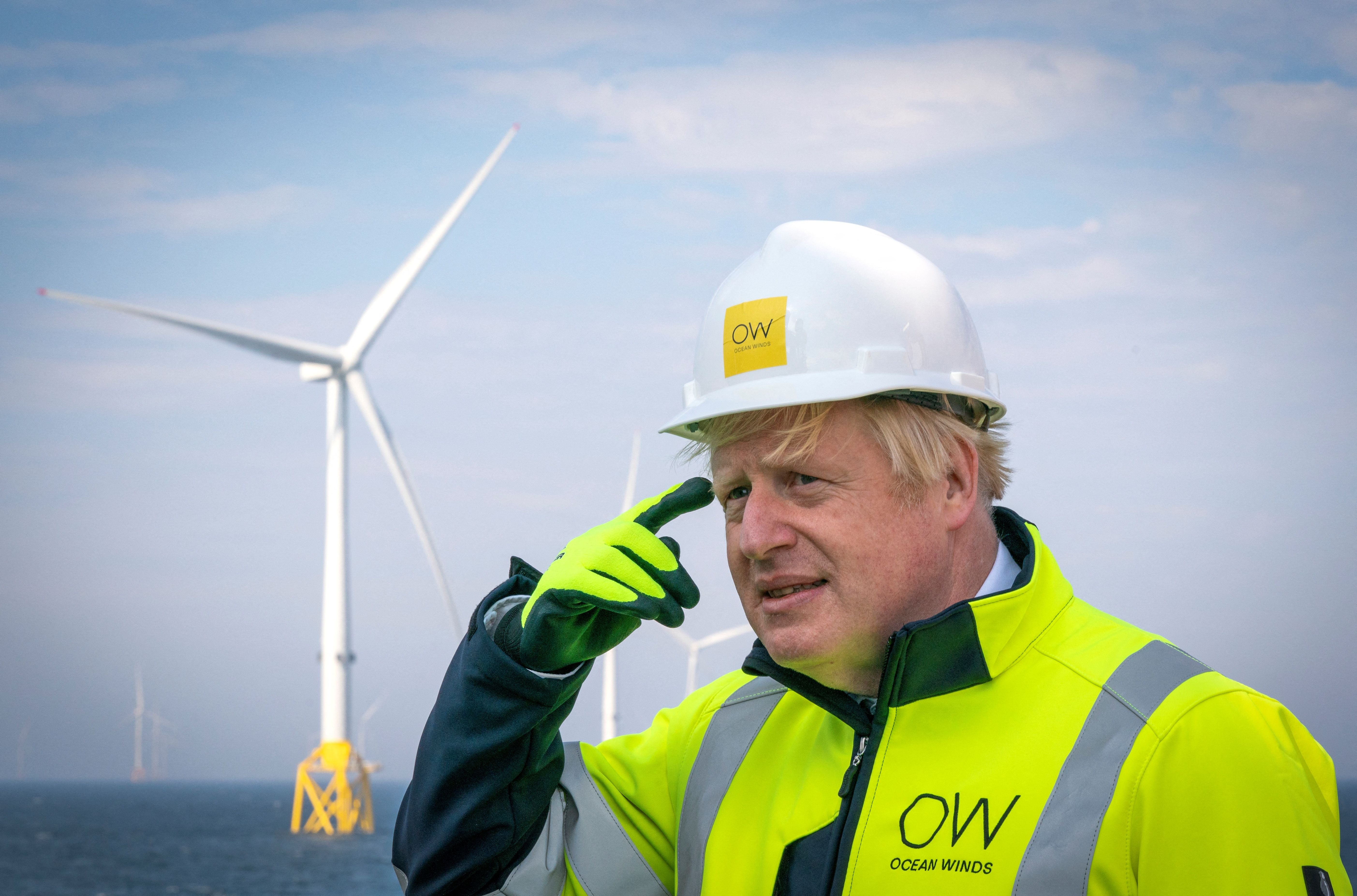Pass the blankets – we’re not taking part in the energy crisis eco trap
The fight to keep the lights on and the temperature comfortable is as much a fight for an environmentally sustainable future as it is for a financially sustainable present, writes Kate Hughes


When your mates ask for a blanket while sitting on your sofa, again, it’s a decent indicator that you need to turn the thermostat up. Except that, unless you’ve just – in the last few minutes – woken up from some sort of vegetative state, you’ve probably noticed there’s an energy crisis.
Nobody is going near that dial. Even if it is winter. Even if the red tops are carrying endless warnings about the impending, and inevitably named, “Arctic cold snap” – having seemingly missed the fact that the top of the world is warming faster than everywhere else on Earth right now.
Indeed, nobody is touching that dial regardless of the fact we’re living in a house that still has its original single-glazing. If I squint I can definitely see the warm air exiting through the ice-cold windows in a battalion of little orange arrows. Hence the blanket on standby.
God I’d love double-glazing right now. Preferably triple-glazing. Maybe even bulletproof if the predictions of imminent uber-hail come to pass any time soon. Fully stuffed cavity walls too, please. And under-floor insulation. And an air source heat pump. I’m good for draught excluders, though. Those were cheap. Or free in the case of the old, stuffed pair of tights lining the bottom of the back door like a sickly python.
The truth is that when we moved in we had big dreams for an off-grid lifestyle. There would be a massive solar array and windows so thick you could bounce our son’s toy aircraft off it with little more than a subdued whisper. Ours would surely be a house so passive our body heat alone would provide equatorial temperatures all year round.
You can tell we were first-time renovators. We got as far as insulating the roof before the cash ran out. I won’t even start to discuss the rewiring. There have been flickers of hope, all of which have been quickly dashed.
There was the grant to fill the cavity walls, which turned out to be too full of rubble to qualify. Then there was the short-lived and ill-conceived green homes grant. Which was officially branded a total fail last month and relied on ticking a raft of more expensive and less urgent home improvement boxes before we got anywhere near help to replace the windows. You remember the one – it folded last year faster than you could say “registered installer shortage”, after fulfilling a tiny fraction of its great promise to save us from our leaky housing stock.
And now that heat pump malarky. Fabulous news to everyone who already lives in a new, well-insulated home, and a total non-starter for everyone else. Hundreds of thousands of households up and down the country are now trapped in a constant energy bill cycle – unable to save the money to pay for home improvements that would save them money, and emissions, on their energy use because those energy bills are already crippling and set to soar another 50 per cent by April – because we rely on unsustainable sources of energy.
This is why calls for an end to the green levy to reduce costs are so back-to-front it makes your head spin. And not simply because the chances of any tax break ever finding its way through to customer savings unscathed is tiny to nil. Our domestic energy crisis stems from a global gas crisis. But our electricity bills are rising too because around two-fifths of our electricity is currently produced using gas.
We now know, for example, that wind farms reduced electricity bills by £160m in the final three months of last year and, with the cost of turbines coming down all the time, that’s only going one way. In fact, failing to invest more and faster in renewables to date means every household is now paying around £140 more a year because of our reliance on fossil fuels. That figure too is only going one way.
Plus, as all the other column inches fill with reports of developments in Ukraine, we haven’t even broached the small matter of domestically produced renewables and energy security. All of which means, in no uncertain terms, that the current fight to keep the lights on and the temperature comfortable is as much a fight for an environmentally sustainable future as it is for a financially sustainable present.
Why do you think a massive alliance of charities ranging from Save the Children and the End Fuel Poverty Coalition to the WWF and Greenpeace wrote a joint letter to the prime minister earlier this month demanding an increase in funding for insulation and clean energy funding alongside emergency funding to support the most vulnerable? This is not an either-or situation. Let no one tell you otherwise.
As for me, one of the lucky ones who can still pay my bills, I’m going to continue avoiding the thermostat, doling out the blankets and saving that bit harder to make my home more energy-efficient. And continue to suggest we catch up in the pub until somewhere in the middle of July. The pub on the High Street, the one with double-glazing. Make mine a tap water.
‘Going Zero: One Family’s Journey to Zero Waste and a Greener Lifestyle’, by Kate Hughes, is now available to pre-order
Join our commenting forum
Join thought-provoking conversations, follow other Independent readers and see their replies
Comments
Bookmark popover
Removed from bookmarks